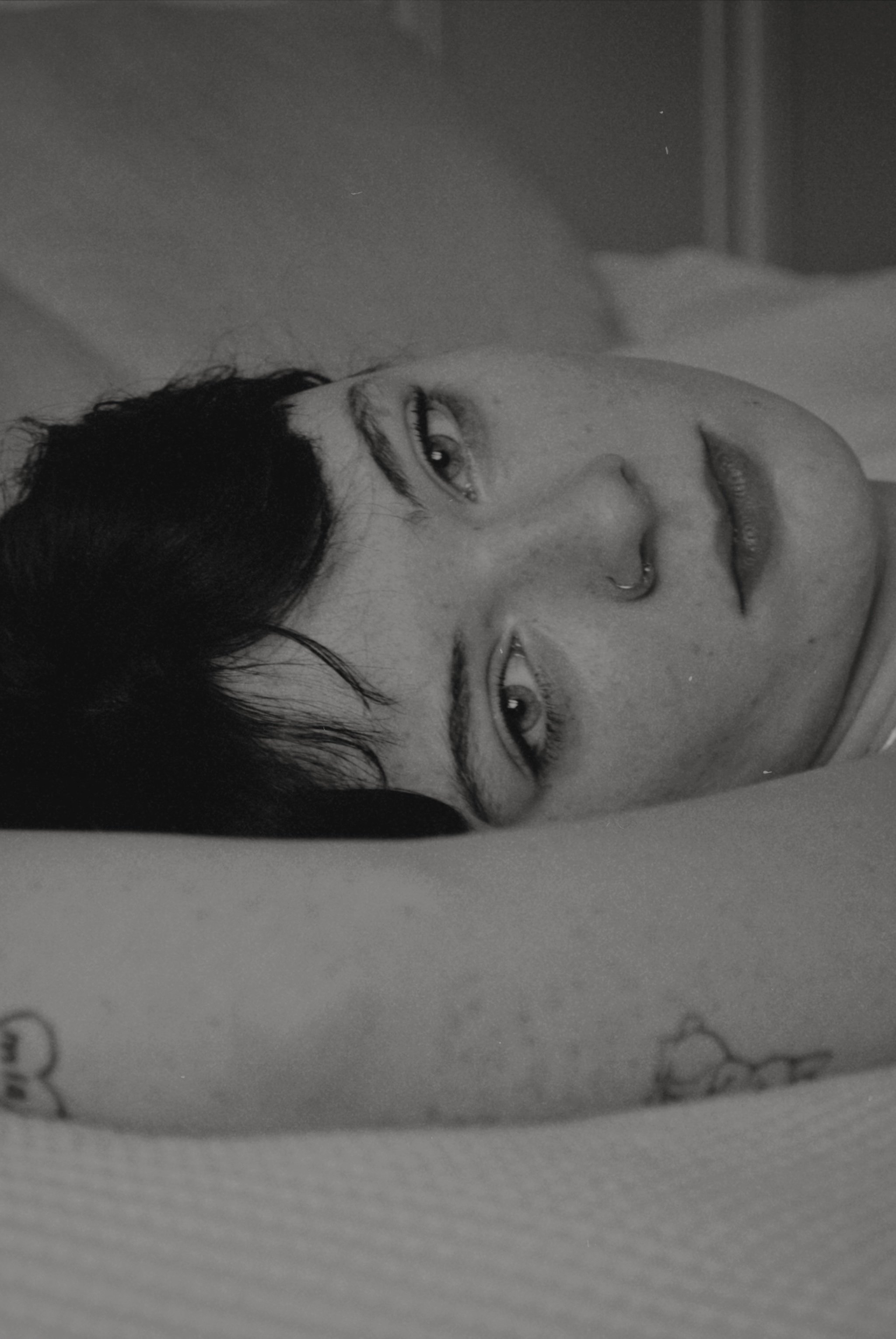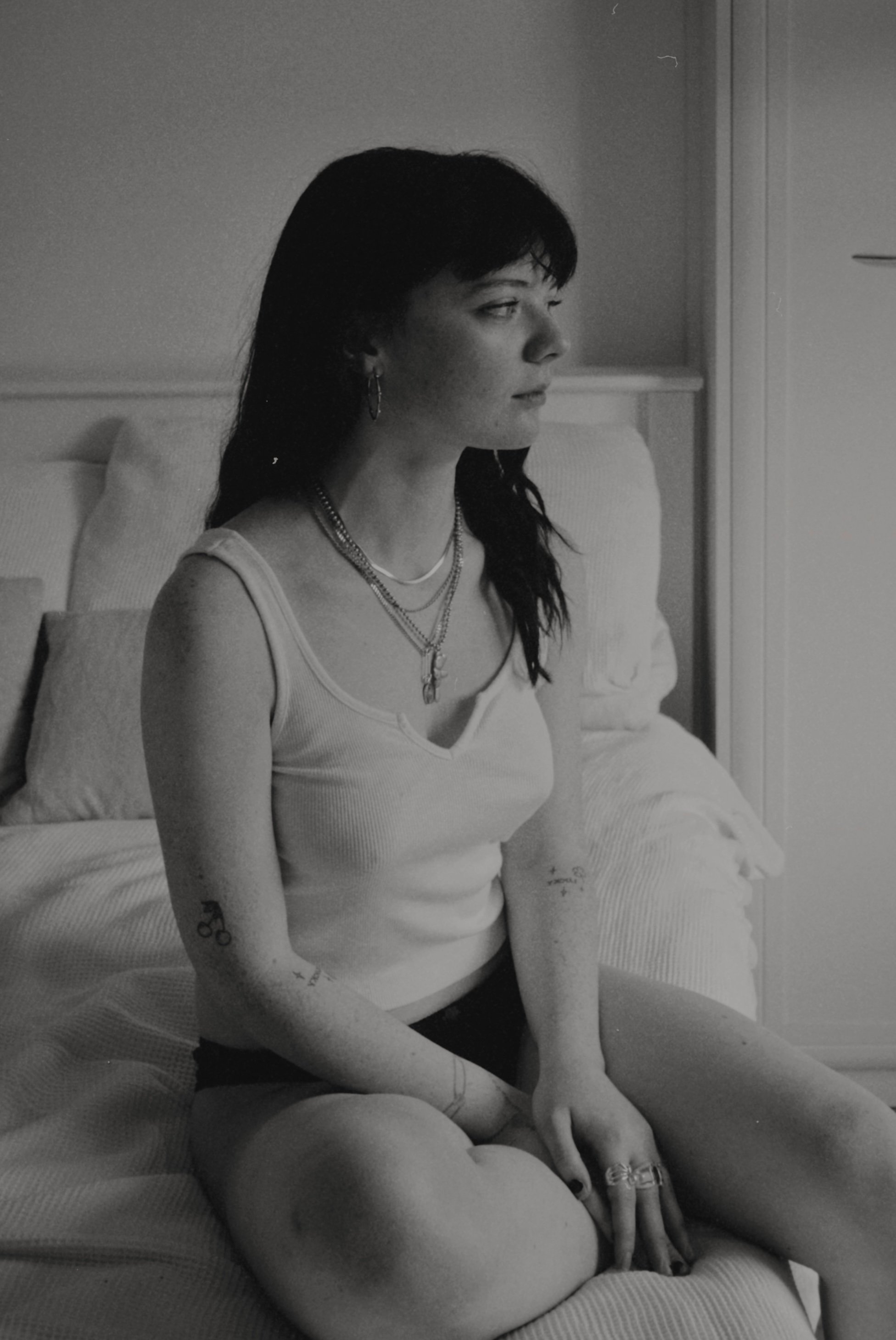
An Unanswered Love Letter
x
By Abby Scarlett
Experiencing grief for the first time will ultimately knock you over, as with all our psychological advancements and accolades, there will never be a possible way to prepare anyone for it, especially when we all grieve differently. Whilst inevitable, it’s consuming, and the inability to predict and control loss will only keep you up at night when it is too late. Despite this, its inevitability shapes grief into a collective journey- the one uniting element across humanity, from all our different paths. Most significantly, the presence of overwhelming pain is an indicator of the presence of love. Perhaps one of the harshest thoughts to stomach is that sometimes grief is needed to realise this. It taught me one of the many complex, intricate shapes and forms that love resides within, only to remember that my friend would never know what I learnt. We weren’t nine years old playing with numbers and just learning sums anymore, and there was no longer two of us.
Language can only articulate it as a loss, but our loved ones will never leave us entirely. Their existence is permanent: in memory, in spirit, in thoughts and words. Where the hollowness in your heart will live forever, there is an uncomfortable reassurance in believing that you will never walk alone again, that they live in your every footstep and every heartbeat.
Healing is personal: a process encumbered with aching vulnerability.
It’s a bittersweet taste as a community blossoms to observe how many lives have been enriched by an individual so adored, how many stories shared and intimate memories reminisced. The support network that emerged when my friend passed so inexplicably, made it feel as though if I shut my eyes hard enough, it was like they never left. Their laugh, their walk, their hair. It’s knowing that no one can tell you how to grieve, or when, but they can remind you that you needn’t swim through a tsunami alone. Often, navigating grief can make it an intangible task to look after yourself, fighting a losing battle not to become a shell of the person you are. I was not okay, and I did not want to heal. I was waiting for someone who wasn’t coming, to save me from the confusion and to tell me it wasn’t reality. I was waiting for my friend, when I could only rescue myself. Yet if everyone handling grief were to lose grasp of themselves, there would be no stories or memories shared, and no one to keep our loved ones’ narrative alive. We are both fortunate enough to see the sun rise every morning and set every evening, and to have known beautiful souls such as my friend.
There is a truth to those that will tell you that you need to heal, for them.
Sometimes, days will wash over where the need to persevere for them will feel like too much pressure, because it is an understandably insurmountable feeling to exist in the same place where they no longer do. Of course, their presence was one of the greatest privileges. At the time, I could only see healing as an arduous thought- why would I want to reach a point where the pain doesn’t run deep enough to bleed? But, a new forever will unfold, where learning to live with loss will fluctuate between moments that proceed to paralyse you, and days where you have room to breathe. The absence of intense emotional overwhelm does not equate to you having forgotten them, and there is no betrayal to anyone in having days, weeks, months where you feel okay. To heal is a path that only you carve, at your own pace, with their soul by your side.







Throughout the past year, one of the most distressing elements was a subconscious motivation behind healing: if I proved that I was going to be alright, then somehow my friend would be brought back. An almost warped A Christmas Carol nightmare. Professionals will label this a derivative of the bargaining stage within the ‘Five Stages of Grief’. In many situations, it can be a huge comfort to know that what fills your head is expected or rational, a natural component in a process. However, you cannot shake the idea that you shouldn’t have to be experiencing it, and that to label a feeling does not change what you do feel, nor behave as a plaster for pain.
Realistically, we are all just searching for control- whether that be choosing to feel heartbreak or to bury a feeling for years. The turbulence of grief can also be heavily impacted by the current social media age, with an ability to stay connected to others in a time of support, and the access to a number of resources. However, the era of TikTok trends and curated Instagram feeds is one of everyone scrambling to paint their life as an idyllic movie to envy. There are ugly, poignant moments in life that are masked behind a wave of ‘self-care’ culture that can push an illusion of healing as so easy and so linear. Frankly, it is the least linear thing that your body and mind can endure, and it can take any length of time before denial or tears fade, and either will return in the blink of an eye. Out of nowhere reality can suddenly flicker, whether that is immediately, or ten years on. A shattered heart will never fit the same way again, but it will always continue to beat.
Tomorrow is not a promise. With that, I found grieving to come with a haunting what-if mentality, a constant chain of what I regret or what I could have done differently. It was a fictitious guilt that your brain desperately develops to find something to blame. And, there is nothing to blame. Loss will always be immensely cruel, and it will never be fair. Eternal sleep will be one of the most gruelling lessons that will ever be hurled at you whatever age you may be, and in whatever capacity. It will teach you how precious small moments are; I want nothing more than to receive another text because they’re scared of walking in the dark, or to take another picture of our shadows in the sun. It will teach you to hug people for one second longer and to say every thought on your mind. Every day still, I wish I had told my friend just how much they meant to me, and not a day will go by where I will let myself make that mistake again.
With all my love to Anthony’s entire family, and friends.
Cardiac Risk in the Young (CRY) is a charity established to prevent young sudden cardiac deaths through awareness, screening and research; and to support affected families.
Words: Abigail Rippin
Photography: Abigail Rippin
Model: Ella Birney


